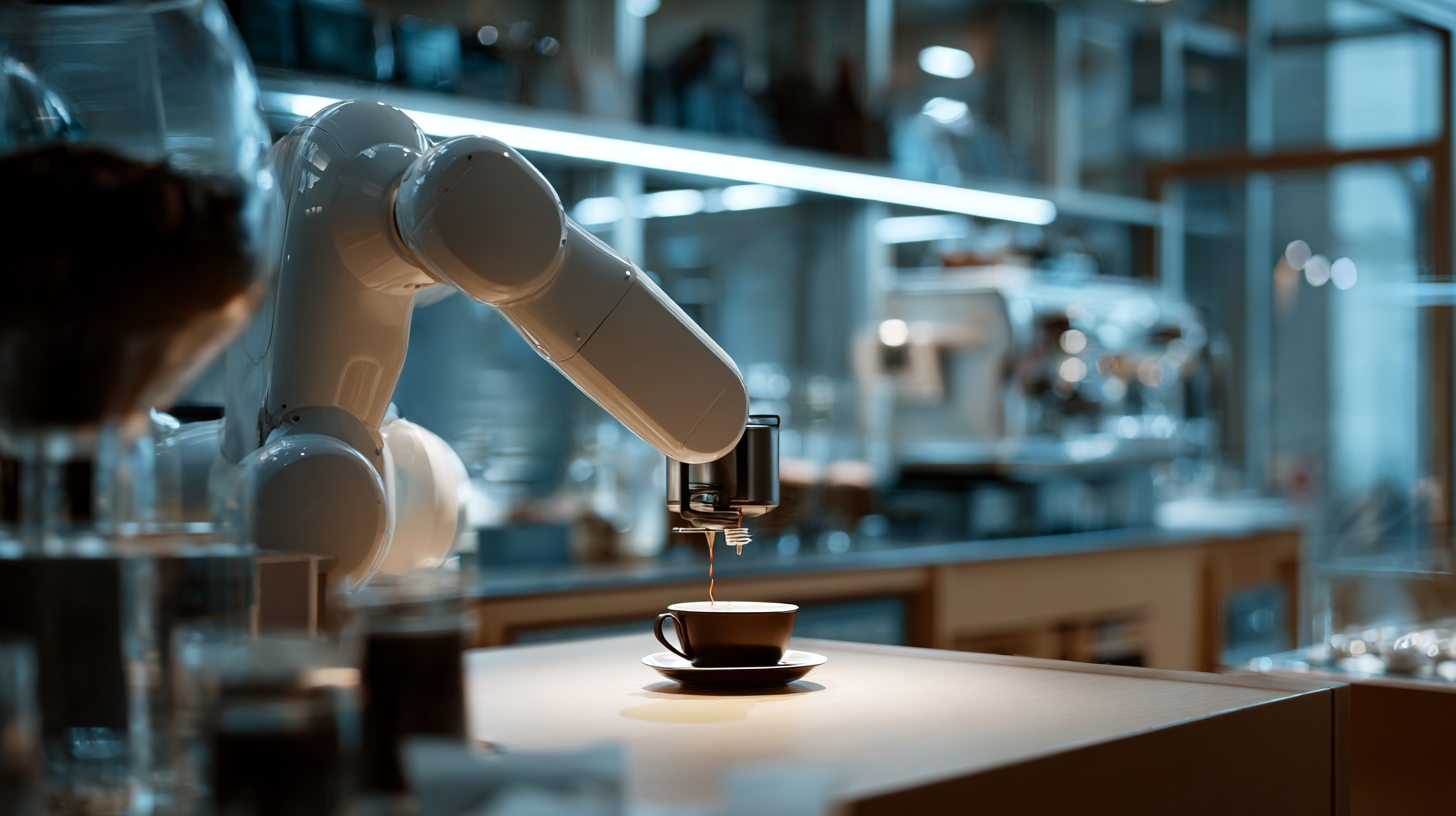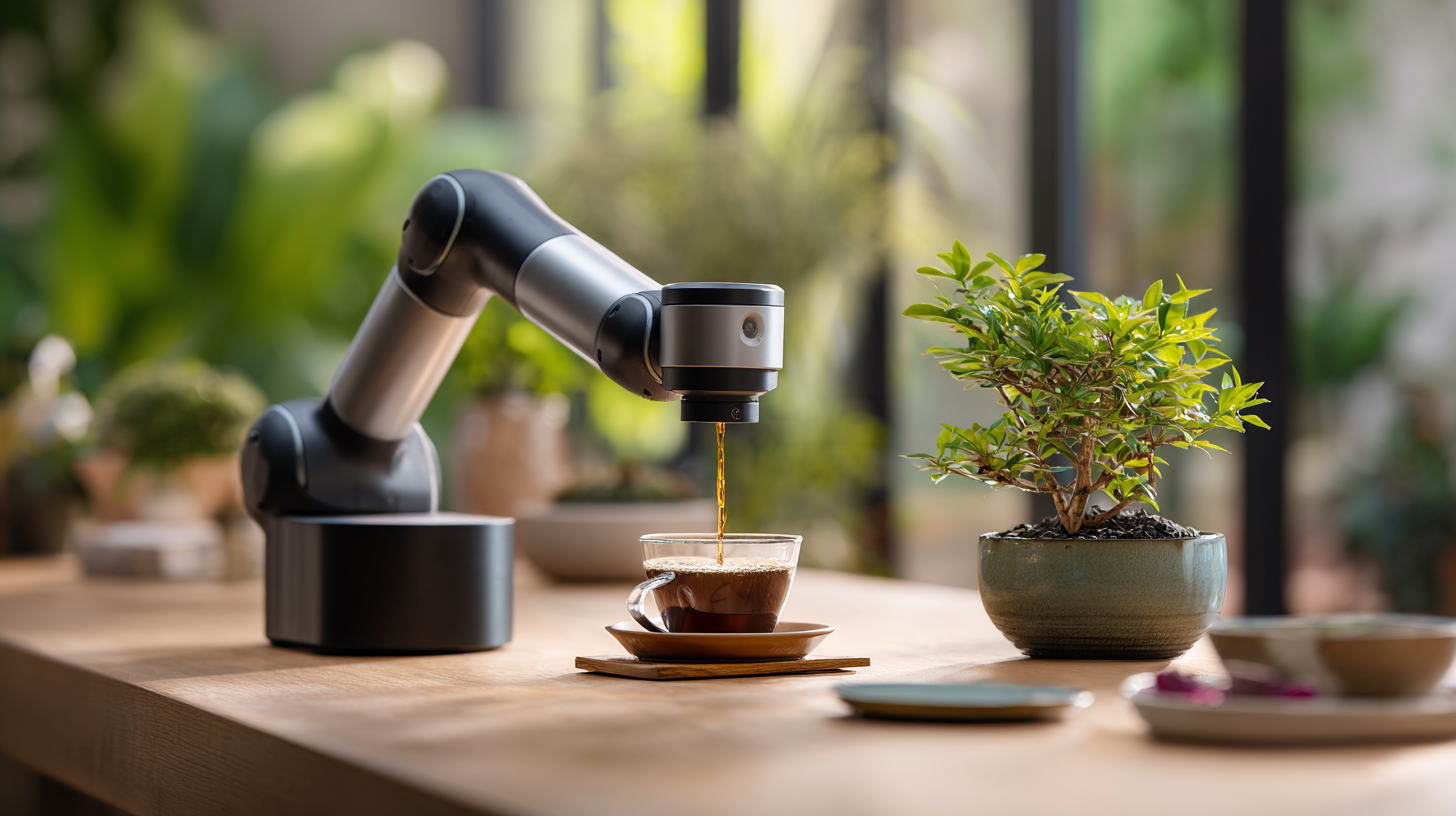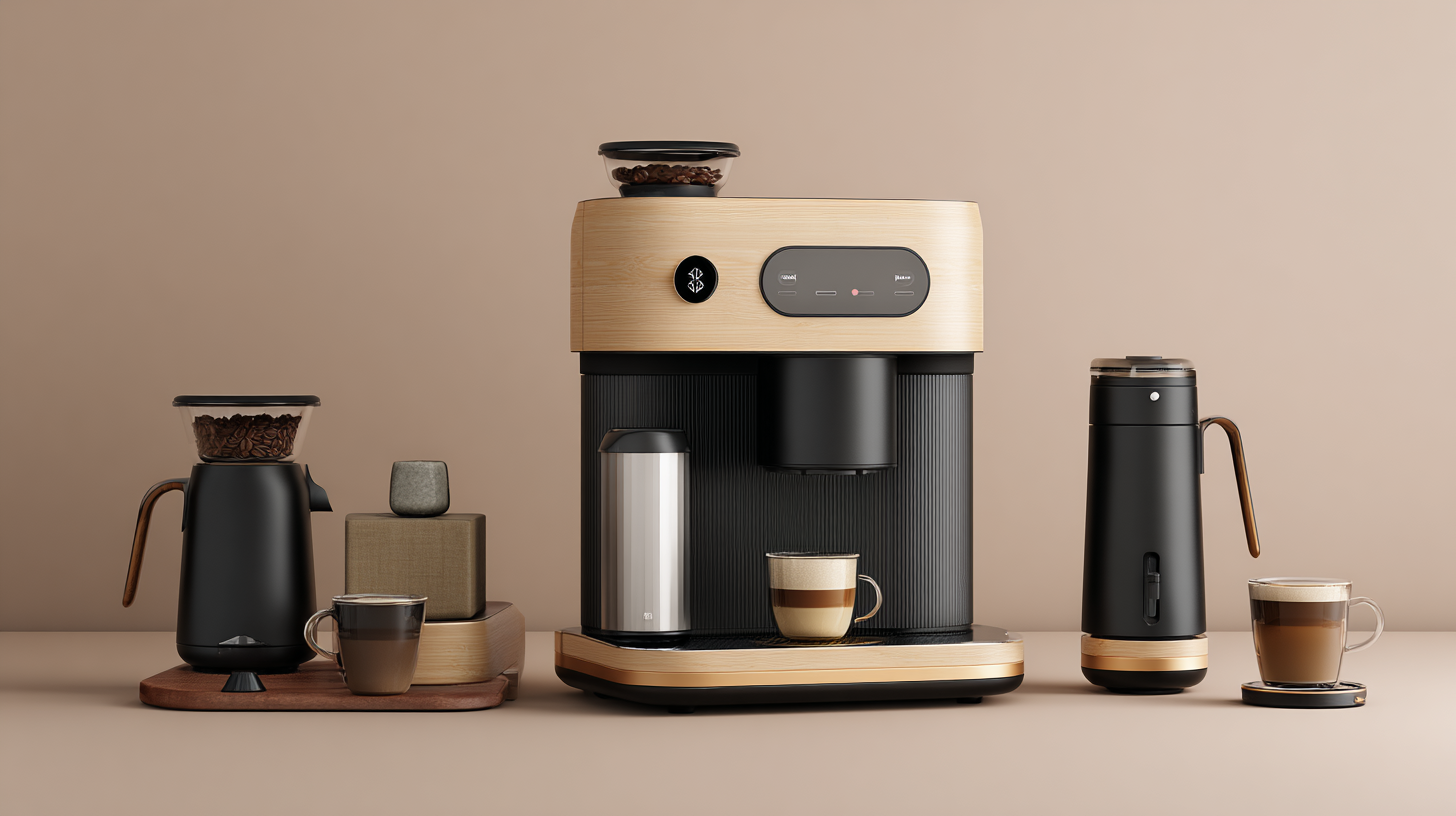Revolutionizing Your Brew: How Coffee Robots Enhance Sustainability and Efficiency in 2023
In the ever-evolving world of technology, the coffee industry is experiencing a remarkable transformation through the integration of "Coffee Robots." As sustainability becomes a pressing concern, these innovative machines are not only enhancing the brewing process but also significantly reducing waste and energy consumption. Renowned coffee expert Dr. Emily Brewster emphasizes this shift, stating, "Coffee Robots represent a pivotal change in how we approach brewing—combining precision with sustainability, they redefine our coffee rituals for a greener future."
The rising popularity of Coffee Robots in 2023 is a testament to the industry's commitment to more efficient practices. These automated systems streamline various stages of coffee production, from grinding to brewing, ensuring consistency while minimizing the carbon footprint associated with traditional coffee brewing methods. As we delve into the benefits of these machines, it becomes evident that they are not just about convenience; they are crucial tools in the fight for a sustainable coffee supply chain.
As we navigate through the insights of this article, we will explore how Coffee Robots are revolutionizing not only the way coffee is brewed but also how it impacts our environment. By shedding light on the latest advancements in this field, we aim to inspire both coffee enthusiasts and industry professionals to embrace this technological revolution and prioritize sustainability in every cup.

Understanding Coffee Robots: Key Technologies Behind Modern Brewing
As the coffee industry evolves, the integration of robotics is redefining traditional brewing methods. In 2023, coffee robots leverage cutting-edge technologies such as artificial intelligence (AI) and machine learning to enhance quality and streamline operations. According to a report by the International Coffee Organization, automated brewing systems can improve consistency, delivering the perfect cup of coffee with every brew. These robots are equipped with sensors that monitor variables like grind size, water temperature, and extraction time, leading to a reduction in waste and a more sustainable coffee production cycle.
Moreover, advancements in IoT (Internet of Things) capabilities allow coffee robots to connect seamlessly with suppliers and consumers. This connectivity facilitates real-time data sharing, enabling predictive maintenance that minimizes downtime. A survey conducted by Markets and Markets projects that the coffee machine market embedded with AI technology will reach USD 2.6 billion by 2025, illustrating a significant trend toward automation in coffee production. By replacing manual processes with smart solutions, the coffee industry can not only enhance operational efficiency but also contribute to sustainable practices by reducing energy consumption and waste throughout the supply chain.
Impact of Coffee Robots on Brewing Efficiency and Sustainability in 2023
Enhancing Sustainable Practices: How Robots Reduce Waste in Coffee Production
In 2023, the integration of robotics into coffee production is transforming the industry by enhancing sustainable practices and significantly reducing waste. With the growing awareness of environmental issues, the coffee sector has begun to adopt innovative technologies that streamline processes and minimize ecological footprints. For instance, automated systems can optimize the use of resources, such as water and energy, making coffee production more efficient and less wasteful. These robots not only serve to mechanize labor-intensive tasks but also incorporate advanced sensing technologies that monitor inputs and outputs, ensuring that resources are utilized judiciously and waste is kept to a minimum.

Moreover, the adoption of robotics contributes to a more circular economy in the coffee industry. As sustainability becomes a priority, there is a shift towards converting coffee waste into valuable products. Through processes such as upcycling, leftover coffee grounds can be transformed into biofuels or compost, mitigating waste generated during production. Additionally, initiatives encouraging the recycling of paper cups and other packaging materials are gaining momentum, with robots playing a pivotal role in sorting and processing recyclables efficiently. This synergy between robotics and sustainable practices presents a promising future for the coffee industry, where innovation drives not only efficiency but also a commitment to environmental stewardship.
Maximizing Efficiency: Streamlining Coffee Brewing Processes with Automation
In 2023, the coffee industry is witnessing a transformative shift as automation takes center stage in brewing processes. The integration of coffee robots is streamlining operations, allowing baristas and cafes to maximize efficiency while maintaining quality. These advanced machines can precisely measure coffee grounds, control water temperature, and time extraction processes with unparalleled accuracy. By reducing human error, coffee robots ensure a consistently high-quality brew, elevating the customer experience.
Moreover, automation in coffee brewing not only enhances efficiency but also promotes sustainability. Robots can optimize resource usage by minimizing waste in ingredients and energy consumption. For instance, automated systems can recycle water and use energy-efficient mechanisms to heat, serving both economic and ecological goals. This alignment with sustainability practices positions coffee businesses favorably in an increasingly environmentally-conscious market. By embracing technology, the coffee industry is revolutionizing its operations, leading to a more efficient and sustainable future for coffee enthusiasts worldwide.
The Role of Data Analytics in Coffee Robots: Improving Quality and Consistency
The coffee industry is undergoing a significant transformation through the integration of coffee robots, bolstered by sophisticated data analytics that enhance quality and consistency. According to a report from the Specialty Coffee Association, 60% of coffee producers are now leveraging technology to streamline their operations. This includes the use of robotics to automate brewing processes, which not only increases efficiency but also reduces the potential for human error. By employing algorithms that analyze variables such as temperature, grind size, and brew time, these robots can consistently produce high-quality coffee with minimal variations.

Additionally, data analytics plays a pivotal role in sustainability efforts within the coffee sector. A study by the International Coffee Organization reveals that data-driven approaches can help reduce water usage by up to 30% in coffee processing. By continuously monitoring environmental factors and operational metrics, coffee robots optimize resource use, ensuring that operations remain sustainable while meeting the growing consumer demand for ethically sourced products. This synergy of technology and analytics not only enhances the quality of each brew but also paves the way for a more resilient and eco-friendly coffee industry.
Future Trends: Innovations in Coffee Robotics for Sustainable Brewing Solutions
In recent years, the coffee industry has witnessed a significant shift due to advancements in coffee robotics, paving the way for more sustainable brewing solutions. According to a report by ResearchAndMarkets, the global coffee robotics market is projected to grow from $1.02 billion in 2021 to $2.68 billion by 2026, at a CAGR of 20.5%. This burgeoning market highlights the increasing emphasis on efficiency and reduced environmental impact in coffee production and preparation.
Innovative technologies, such as robotic baristas and automated coffee brewing systems, not only enhance consistency and quality but also optimize resource usage. For instance, these robots are designed to minimize water wastage and energy consumption significantly. A recent study indicated that robotic systems could reduce water usage by up to 30% compared to traditional brewing methods. Additionally, firms adopting such technologies report a decrease in coffee bean waste by approximately 20%, aligning perfectly with the industry's sustainability goals. As coffee robotics continues to evolve, it promises to transform how we think about our favorite beverage, making brewing more efficient and environmentally friendly in 2023 and beyond.